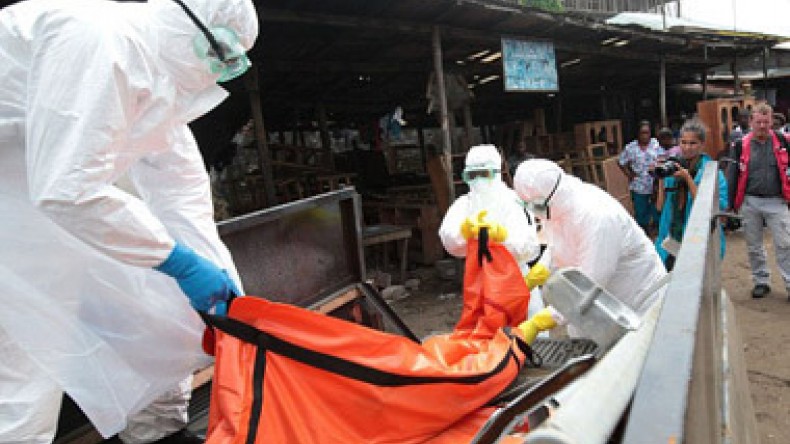
Could the Ebola epidemic trigger surge in malaria?
The number of people losing their lives to malaria has halved since 2000, but experts warn the progress made in West Africa is in jeopardy as resources and funds are channeled into fighting Ebola, the Daily Mail reports.
Fragile gains against malaria in the region have been hampered by the Ebola outbreak, which has so far claimed the lives of more than 6,300 people.
In Sierra Leone, Guinea and Liberia malaria programmes have been suspended in some areas while resources are directed into battling the deadly virus.
And the epidemic has put a huge strain on already fragile health services in the three countries, hit hardest by the worst Ebola outbreak in history.
The World Health Organisation's director general Margaret Chan, said: 'The collapse of health systems has affected all core malaria interventions and is threatening to reverse recent gains.'
Across the world, malaria deaths were down 47 per cent between 2000 and 2013.
Fatalities decreased 53 per cent in children under the age of five - the equivalent of averting around 3.9 million children's deaths.
In sub-Saharan Africa, where 90 per cent of all malaria deaths occur, the mortality rate fell by 54 per cent - 58 per cent in under fives, the equivalent of around 3.9 million children's deaths averted, the WHO annual report revealed.
But WHO experts have warned of major gaps in access to mosquito nets and anti-malaria treatments.
And the UN agency said there is a 'worrying' emergency of resistance to the most commonly used insecticides.
The WHO said the number of infections in sub-Saharan Africa at any one time fell 26 per cent during the 13-year period.
Meanwhile, 13 of the 97 malarial countries reported no cases of the disease last year, including two, Azerbaijan and Sri Lanka, which recorded their first ever zero results.
'These are truly unprecedented results and phenomenal news in terms of global health,' said Pedro Alonso, director of the WHO's global malaria programme.
He attributed the progress in large part to increasing financial and political commitment, in particular regional efforts to work together to eliminate malaria.
However, despite a threefold increase in investment since 2005, malaria programmes are still underfunded - $2.7 billion (2.2 billion euros) in 2013, compared to $5.1 billion international target.
And as a result, major gaps remain.
While access to insecticide-treated bed nets has improved, 278 million of the 840 million people at risk in sub-Saharan Africa still live in households without one.
As many as 15 million pregnant women do not receive any preventative treatment, while 437,000 African children are still dying from the disease each year.
In West Africa, since the outbreak of the current Ebola epidemic earlier this year, the focus has shifted from fighting malaria to containing the deadly virus.
Health workers had been increasingly using simple tests to diagnose malaria on the spot, to better target treatments.
But these have been suspended in areas rife with Ebola.
And many people suffering malaria are staying away from clinics.
Richard Cibulskis, lead author of the WHO's malaria report said if people 'aren't getting treated, you can be sure that mortality is going to increase.
The total death toll from malaria across the three countries was expected to be about 20,000 a year before the outbreak.
Mr Cibulskis said he would not predict a figure now.
More than 6, 300 people have died from Ebola in the region in the past year.
Aside from the direct consequences, the resurgence of malaria could also harm the fight against Ebola because the two have similar symptoms, making it difficult to diagnose the deadly virus, the WHO said.
UNICEF last week launched a campaign to provide anti-malarial drugs to 2.4 million people in Sierra Leone, while global aid agency Doctors Without Borders is conducting a smaller scale effort in Liberia.
Another issue threatening progress on malaria across the world is the rise of insecticide resistance, which has been reported in 49 countries since 2010 - 39 of which reported resistance to two or more insecticide classes.
'Emerging drug- and insecticide-resistance continues to pose a major threat, and if left unaddressed, could trigger an upsurge in deaths,' Dr Chan added.
Newsfeed
Videos






























